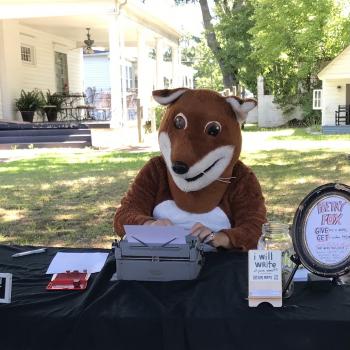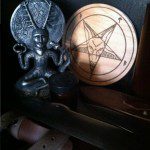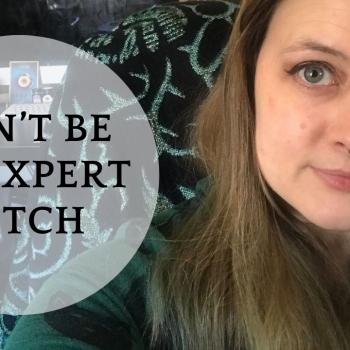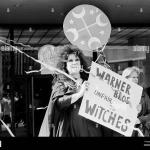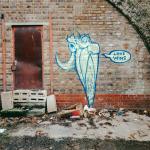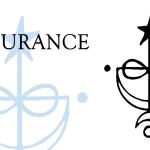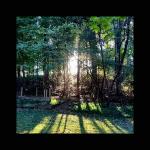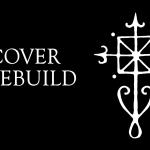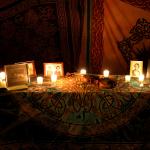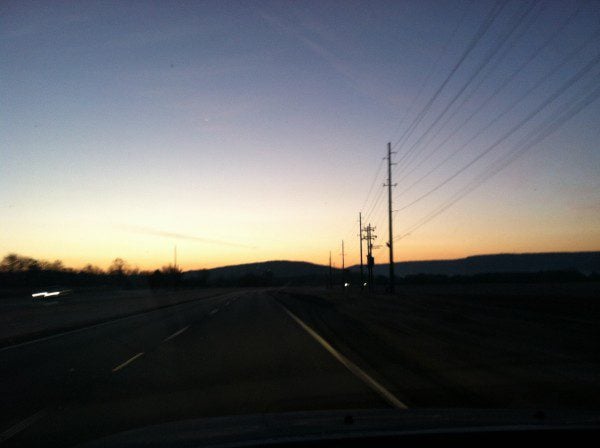 “I used to be interested in Wicca, back when I was a teenager. But life got in the way, and I just put it down. I want to get back into it and start studying again. Can you recommend a book?”
“I used to be interested in Wicca, back when I was a teenager. But life got in the way, and I just put it down. I want to get back into it and start studying again. Can you recommend a book?”
The question was casual. We hadn’t been friends long, but Ava already knew about my Craft practice and felt comfortable asking for my input.
It’s funny: I’ve been writing about more complex issues in witchcraft and Paganism for the last couple of years and focusing on my specific tradition. In doing so, I’ve sort of forgotten how to address these more fundamental questions.
What is Wicca? How to I become Wiccan? Can you recommend a book or a website?
There are so many resources available now, and so many vocal communities, both online and in meatspace, but I still had to stop and think before I could answer my friend’s question.
What book would I recommend?
For decades, the go-to works have been various things by Scott Cunningham, Ray Buckland, the Farrars, or Silver RavenWolf. Before that, you’d read Gardner, Valiente, Leek, Murray. In more recent years, others have made it to the most-recommended list. I immediately thought of Thea Sabin, Deborah Lipp, and Dianne Sylvan. There are hundreds of new Wicca and witchcraft titles every year, and I’m excited that so many now focus on what we might think of as “advanced” practice. We’ve gotten a little deeper as a community. Our sense of history is better. We’re more focused. We’re asking better questions and becoming more aware of the issues at stake in our communities.
But I still don’t have an introductory book that I feel like I can recommend in total confidence. Until Ava asked, I also really hadn’t thought about the fact that I don’t have a favorite website to send beginners to, either.
I was just sort of taken aback. It’s been a while.
[In fact, one of my covenmates just pointed out to me—laughing, as I tell her what I’m writing about—that I have a “resources” tab on this blog, which links to absolutely nothing. #winning]
The issue of course is not that there aren’t plenty of excellent resources; it’s that no one of them is complete. You can’t just look to one source for a comprehensive, accurate, inclusive picture of the Craft. Something always gets left out or skewed.
That makes sense. We’re talking about something huge and multi-faceted. In order to really get a handle on it, a beginner needs multiple sources, some field experience, and maybe the inklings of a personal practice. Honestly, it took me years before I really felt like I had a sense of what Wicca really was (let alone witchcraft as a broader category), and when I look back, I think it’d be easy to make a case that I didn’t even understand then. Truth be told, I still feel like I’m in over my head half the time.
So I’m thinking about general advice for the absolute beginner, and this is what I’m coming up with:
- Read everything, but do so critically. It takes about three seconds to find the most popular, highest recommended books on some site like Amazon. There are reading lists all over the Internet, and they tend to rotate around the same handful of books. Read those. All of these books also have detractors, of course, but that’s just the way of things. Usually, people object to particular perspectives (“This isn’t REAL Wicca!”) or else they don’t like how an author addresses (or ignores) something more specific (“This author uses the terms Wicca and witchcraft interchangeably and those are totally different things!” or “This author advocates [some type of magic] I don’t agree with!”). There will be plenty of that. Read them anyway. Then go and read alternative perspectives. Once you’ve read all of those, go read the books that didn’t make it to those lists. Read everything. I think order is a lot less important than volume, provided that you’re persistent. You’re not going to “ruin” yourself by reading bad books as long as you consistently read with the understanding that the author is only presenting one perspective, not speaking perfectly for an entire movement. Over time, you piece together the stuff that is consistently true and useful.
- Use the whole Internet. The Pagan Internet is huge. Don’t just stick to Facebook. There are blogs everywhere (clearly, because here you are). There are Pagan YouTube channels and Tumblr pages. There are even social media sites entirely for Pagans (wiccantogether.com is still a thing, even). Beyond that, there are plenty of websites designed to help you research specific subjects. Witchvox is also still a thing, and people still use it. Get off your favorite platform and try something new. It’s a great big world out there.
- Leave home and actually do something. If you have the opportunity to go out and meet witches in some capacity, do it. Embrace the nervousness and self-consciousness and whatever. Accept that you might look ignorant to more experienced people. You are ignorant. And that’s okay. What’s not okay is someone else being an asshole to you about it. If you meet an asshole, thank the gods that they at least made themselves easy to spot so you can avoid them next time. Go do the thing. Get in your car, or on the train, or on the bus, or in your friend’s car, or whatever and go do the thing. There’s plenty you can do in the comfort and safety of your own space, but things move along a lot faster when you explore beyond those bounds.
- Set up a sacred space, but don’t get caught up in accumulating things. Make an altar, clear out a corner of your closet, dedicate a whole fucking ritual room, or do whatever it is that gets you excited and makes you feel good, but take your time with it. Build meaning into the process. It’s tempting to buy a lot of ritual tools all at once, or to commit to some craft project beyond your immediate artistic skill, but there’s pleasure in waiting, too. Go right on ahead if you want to—by all means, witches love stuff—but don’t let the acquisition of magical objects become the magic itself.
There’s a learning curve. You’ll run into a lot of conflicting opinions, different styles, different theologies, rude people, confusing generalizations, and stuff that makes you go, “Nope. Hell no. Nope.” But there’s nothing quite like those first steps, finding yourself. I feel like a lot of what I’m doing in those low moments of my aging practice (I’m about to hit twenty years, guys, holy crap) is trying to recreate that initial excitement. Things change, and all kinds of awesomeness awaits as years pass, but you never get those first experiences back. So take your time and pay attention.
I ended up giving Ava The Circle Within by Dianne Sylvan, by the way. What would you have given her?






